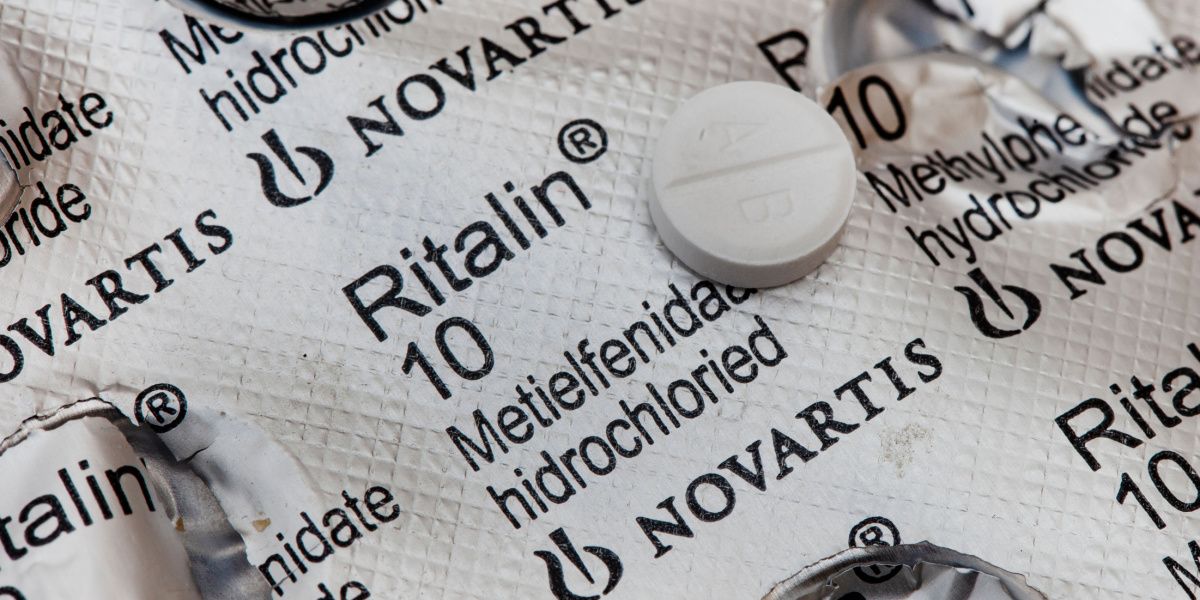Dexedrine is the brand name of Dextroamphetamine, a central nervous system stimulant used predominantly to treat ADHD. As it is an amphetamine-based substance, Dexedrine holds a high potential for abuse and addiction.
- As Dexedrine improves focus and attention span, as well as boosting physical attributes, it is often abused by college students, athletes, people in high-pressure jobs, those looking to lose weight, and anyone wanting a boost in focus
- Any use of Dexedrine outside the recommended dosage prescribed by a doctor is considered abuse. This includes taking higher than recommended doses, taking longer than prescribed, and taking without a prescription
- Those who abuse Dexedrine long-term, especially those with a dependence or addiction to the substance, will likely experience [more] severe effects over time

What is Dexedrine?
Dexedrine is a brand-name medication, classified as a central nervous system (CNS) stimulant. Dexedrine contains the substance dextroamphetamine sulfate, which is included in the amphetamines class of medications and is a Schedule II controlled substance, due to its risk of abuse and dependence. [1]
Dexedrine is only available on prescription, although it is often sold and distributed illicitly. In the US, amphetamine medications are some of the most widely prescribed and misused substances. [2]
What is Dexedrine used for?
Dexedrine is approved for use in the treatment of attention deficit/hyperactivity disorder (ADHD) and narcolepsy. [1]
Dexedrine is available as an immediate-release 5 mg tablet and as a sustained-release capsule in 5 mg, 10 mg, and 15 mg strengths. The immediate-release tablet can be taken two or three times per day, or every 4 to 6 hours, while the extended-release capsule is taken just once per day, as the medication is released into the body gradually over several hours. [3]
A typical daily dose will vary depending on the individual and the severity of their condition. Generally, individuals will be prescribed between 5 and 60 mg per day, depending on their requirements. Doctors will often begin the prescription on a low dose and slowly increase the amount until a therapeutic dose has been reached. This can help reduce the severity of side effects when commencing a new treatment. [1]
Effects of Dexedrine abuse
Dexedrine and Dextrostat both hold a high potential for abuse, as do all amphetamine-based medications. Any use of Dexedrine outside the recommended dosage prescribed by a doctor is considered abuse. This includes taking higher than recommended doses, taking longer than prescribed, and taking without a prescription.
As Dexedrine improves focus and attention span, as well as boosting physical attributes, it is often abused by college students, athletes, people in high-pressure jobs, those looking to lose weight, and anyone wanting a boost in focus.
Dexedrine holds the same risk as other amphetamine-based medications when abused, both for physical and mental health. Most people who abuse the drug short-term will likely exhibit similar side effects that can range from mild to moderate. Those who abuse Dexedrine long-term, especially those with a dependence or addiction to the substance, will likely experience more severe effects over time.
Common side effects of Dexedrine abuse
There are several side effects associated with Dexedrine use. Some of these will occur when the medication is taken as prescribed and others will occur when the substance is abused. common side effects of Dexedrine include:
- Insomnia
- Loss of appetite/weight loss
- Blurred vision/headaches
- Dry mouth
- Agitation/anxiety/irritability
- Circulation problems/increased blood pressure
- Flu-like symptoms including tremors and fever
Severe effects of Dexedrine abuse
- Delusional thoughts/hallucinations
- Seizures
- Amphetamine-induced psychosis
- Nausea/vomiting
- Dizziness
- Difficulty thinking clearly
- Manic behavior
- Aggressive behavior
- Increased heart rate
- Heart attack
The dangers of Dexedrine
The risks of Dexedrine include the high potential for abuse, physical dependency, and addiction. Dexedrine, like other amphetamine stimulants, causes large amounts of dopamine to be produced and released in the brain. Dopamine affects the pleasure and reward center of the brain and abusing Dexedrine in large amounts causes the user to stop feeling the effects of regular amounts of dopamine. This creates a tolerance to the drug meaning the abuser will require more of the substance to feel its effects. This in turn can lead to a physical dependence forming, whereby the user will need the drug in larger amounts to feel normal. The negative consequences caused by physical dependence are what leads to addiction.
As Dexedrine has a high potential for abuse, as well as causing sudden death in some users, the FDA has ruled that the following warning be printed on all prescriptions of Dexedrine to advise patients of the risks.
"Amphetamines have a high potential for abuse. Administration of amphetamines for prolonged periods of time may lead to drug dependence and must be avoided. Particular attention should be paid to the possibility of subjects obtaining amphetamines for nontherapeutic use or distribution to others, and the drugs should be prescribed or dispensed sparingly. Misuse of amphetamines may cause sudden death and serious cardiovascular adverse events." [2]
Dexedrine addiction
Many people start abusing Dexedrine fairly innocently. They may use the drug to help them study, stay focused at work, or for athletic gain. Without knowing it people can become addicted to Dexedrine and begin to experience negative consequences of abusing the drug.
Like most forms of addiction, a person with a stimulant use disorder will be diagnosed by a licensed medical professional using these 11 criteria, outlined by the DSM-5. [3] These criteria are measured by the negative impact the substance has on a person's life; including physical, psychological, and behavioral measures, and are classified as mild, moderate, and severe.
Examples of criteria used to measure Dexedrine addiction
- Withdrawal: When you stop using the substance, you experience withdrawal symptoms.
- Tolerance: You have built up a tolerance to the substance so that you have to use more to get the same effect.
- Used larger amounts/longer: You have started to use larger amounts or use the substance for longer amounts of time.
- Repeated attempts to control use or quit: You've tried to cut back or quit entirely, but haven't been successful.
- Physical or psychological problems related to use: Your substance use has led to physical health problems, such as liver damage or lung cancer, or psychological issues, such as depression or anxiety.
- Activities given up to use: You have skipped activities or stopped doing activities you once enjoyed in order to use the substance.
- Craving: You have experienced an intense craving for the substance.
Dexedrine can be hard to quit once a dependence or addiction has formed. It is never advised to stop using on one's own, and by attending a treatment facility for addiction the chances of making a full recovery are greatly increased.
Treatment for Dexedrine addiction
The first step to recovery from Dexedrine addiction is recognizing you have a problem and are ready to do something about it.
Attending a medically supervised detox can ensure you are comfortable while the drug leaves your system, cope with Dexedrine withdrawal symptoms, and can help mitigate cravings and prevent relapse. It also allows the brain to start regulating natural levels of dopamine and decrease the established tolerance.
Once the drug is out of the system, a full treatment program can begin. This will normally involve a range of therapy, counseling, and support groups to help identify the behaviors that lead to substance abuse, learn how to control and adjust said behaviors, build a support network with other people who have been in the same position and treat any co-occurring disorder that may be present.
Dexedrine addiction treatment is available at both inpatient and outpatient rehab centers, many of which specialize in stimulant and specifically amphetamine addiction. Contact a treatment provider today to start the journey to a full recovery from Dexedrine abuse.



-guide-detail.jpg?v=1722501856)

-guide-detail.jpg?v=1743497813)